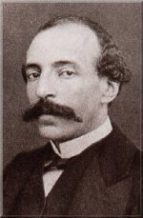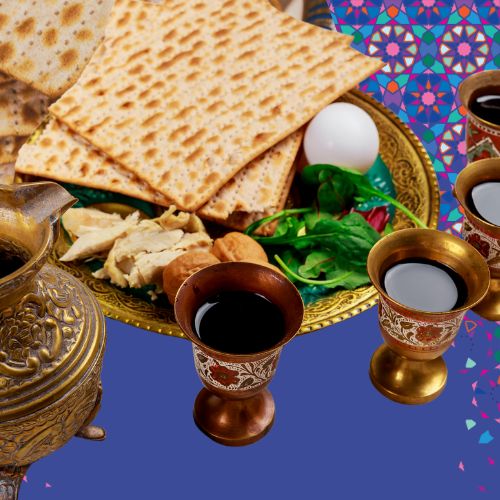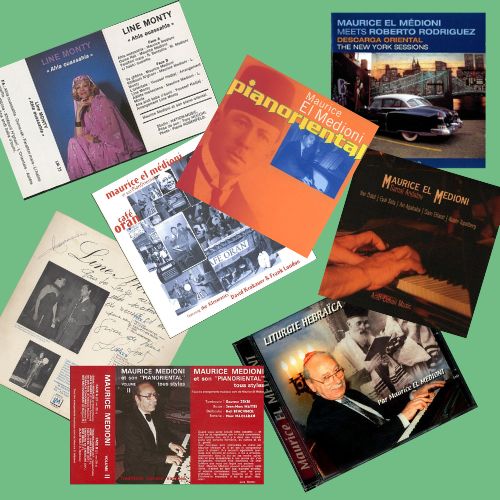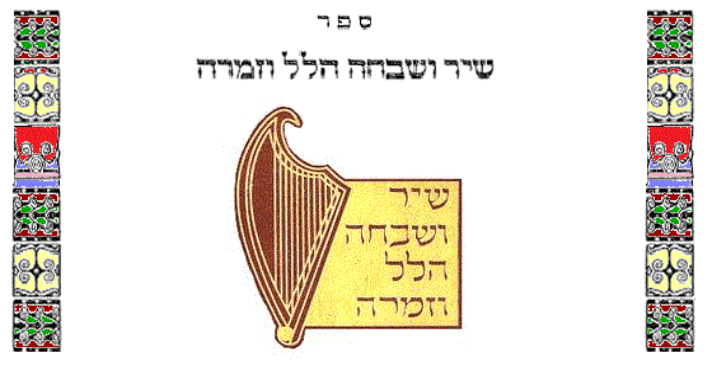
By Hervé Roten
Emile Jonas was born to a Jewish family in Paris on March 5, 1827. His father was Simon Jonas and his mother was Jeanette Pohl. In 1841, Emile Jonas, at 14 years old, began attending the Paris Conservatory to study piano, harmony (Felix Le Couppey’s class) and composition (Michel Carafa’s class). In 1847, he won first prize in harmony at the Paris Conservatory and in 1849, the Second Grand Award of Rome, with his cantata Antonio [1].Simultaneously to a position of music director of the Imperial Guard (for whom he composes many marches and works for military brass bands), he led the career of a teacher at the Conservatoire de Paris, from 1847 to 1870. He first taught solfeggio and then composition, starting in 1859.
In 1851, following Fromental Lévy’s suggestions, Emile Jonas proposed to the Paris Consistory to become their organist at the main synagogue, on Notre-Dame de Nazareth, which originally had separate halls for prayers in Ashkenazic and in Sephardic. From 1854, Jonas was working as the organist and choirmaster at the Portuguese synagogue at 23 rue Lamartine. The Recueil des chants hébraïques anciens et modernes exécutés au Temple du rit [sic] portugais de Paris was published in 1854 and consisted of 39 liturgies for soloists, choirs, organs and harps of which 24 were his own compositions. An expanded version appeared in 1886 entitled Chants hébraïques exécutés dans les temples consistoriaux et au Temple du rite portugais de Paris, accompanied by recommendations for interpretation as well as exercises.
His Psalm 130, for baritone and chorus, as well as the Vayehi binsoa prayer that is sung at the removal of the Torah from the Ark, was performed at the inauguration ceremony at the Temple de la rue de la Victoire, September 9, 1874. That same year, Emile Jonas published a volume of 21 compositions from various composers used during marriage ceremonies held at the synagogue. In 1879 he published another volume with music used in religious services during Shabbat.
In parallel to his liturgic career, Emile Jonas was also a prolific composer, author of some twenty operas buffa, several that had known great success. He shared the bill in Parisian theatres (then afterwards in France and in Europe) with some of the most famous French composers from the second half of the 19th century, Delibes, Messager, Offenbach…This last, both friend and mentor to Jonas, introduced him to the most popular librettists of the time and produced six of his pieces, the one act opera buffa La Parade (1856), Le Roi boit (1857), Les Petits Prodiges (1857), for which Offenbach contributed at least two numbers, Job et son chien (1863), Le manoir des Larénardière (1864), Avant la noce (1865) and Désiré, sire de Champigny (1869).
In 1867, Emile Jonas was part of the committee in charge of organizing the military parades for the Universal Exhibition inaugurated by Napoléon III and the Empress Eugénie. He was unanimously recognized not only for his artistic achievement but also for his dedication and his organizing ability. He also belonged to several boards of directors for authors and composers. He knew many famous people such as Bizet, Gounod, Labiche, Sardou, and Alexandre Dumas son. He was named Chevalier and then Officer of the French Legion of Honor.
Emile Jonas died in Saint Germain-en-Laye on May 21, 1905. He is buried in the Montparnasse cemetery. His musical work has unfortunately been forgotten.
Learn more :
Browse our archives on Emile Jonas



